Schools of thought, and schools of no thought.
E verybody wants a graphic novel. Nobody's sure what one is. And Campbell is to be called to explain it to the world, possibly on TV next week. Just waiting for it to be organized. I scan the news to check the current state of play, in case it's all changed in the last week...
Britain Embraces the Graphic Novel By TARA MULHOLLAND- September 5- NY TIMES
For Paul Gravett, the author of “Great British Comics” and one of the country’s foremost promoters of graphic novels, one of the primary reasons is simply the creation of the “graphic novel” category. “The word comics is laden with so many negative connotations, while the words ‘graphic novel’ give it a certain cachet,” he said.Connect this to what I was saying on 27 Aug. regarding there being three schools of thought as to what a 'graphic novel' actually is, and also to this from The Guardian- nov 20- 2005- Strip lit is joining the literary elite:
"There are a lot of pure geniuses working in the form. But I don't believe it's going to become a truly mass phenomenon. A lot of people who would buy literary fiction find them impossible to read. And it's still difficult to get these books into the bookshops—they're still full of superheroes."—Dan Franklin. (editor at U.K. publisher Jonathan Cape, publisher of Dan Clowes commenting on the U.K. graphic novel market and on cartoonists Posy Simmons and Raymond Briggs being named fellows of the Royal Society of Literature.)Obviously 'negative connotations' in the first quote is to be identified with 'superheroes' in the second. Strategically, the kind of books I like to make and read could make more headway in the bookworld if they were allowed to travel without being attached to the other kind by leg-irons. I'm reminded of Woody Allen's escaping chain gang in 'Take the Money and Run': "Why are you all standing together like that?" "We're a close family".
Frank Miller on a beach in Cannes last May tells a couple of European interviewers that a graphic novel is a big comic book (identified by me as the second school of thought on the matter and the one that I am sure will win out), which is fine for him as he's a big comic book artist. I don't think he considers the extent to which 'comic book' is probably viewed as a fairly constricted American 'genre' of popular fiction in Europe, nor if he did consider it would he be bothered much, since he operates entirely in the iconic field of the comic book.
My aug 27 piece was linked in a couple of places describing it as 'Eddie Campbell's definition', though how an essay that presents three separate and mutually exclusive views on the matter can be described as DEFinite I do not know. Sounds somewhat INdefinite to me. Stephen Weiner, reviewing Gilbert Hernandez' Human Diastrophism (Boston Globe, Aug 28), tries to be definite:
In the 1980s, the comics industry was stretching. The concept of the "graphic novel" was born a few years earlier, a story hoping to achieve the same literary import as a prose novel and completed between the front and back cover of a book. Cartoonists were experimenting with both the types of stories told in comics format and the ways these stories were presented.That sits in the first school of thought, recognizing as it does that the idea of the graphic novel started with an ambition toward literary weight, and it carefully sidesteps the problem area mentioned above. Weiner proceeds from there to a proper review of the work in hand, without even referring to the book's drawings until the fifth and final paragraph, and without using the term 'comic book', though the thought that such efforts come out of a comics 'industry' discomforts me a little (would we say the 'literature industry'?).
Observe: (NY SUN- Sept 5) Ronald Reagan, a Graphic Biography, to be published next week by Hill and Wang, and note that the descriptive term puts the publisher in my third category, in which the word 'graphic' gets divorced and remarried. The first school of thought doesn't do this because it always accepted that the term 'novel' is a misnomer and the second doesn't do it because it's so wrapped up in comic books it's not really aware of the existence of other modes. I'm not sure why the third school doesn't realize the word 'graphic' is pretty much a misnomer too ('written, drawn, or engraved'), or at least is so vague in this context as to ask more questions than it answers. The reviewer, whom I will not give a name, obviously thinks its an 'industry', because throughout 21 paragraphs he neglects to mention the name of an author (and otherwise sits in my second category, having no sense of a comic strip earlier than Superman, and note that he credits DC comics with authoring that one):
To portray the story of Reagan's road to and life in the White House as a comic strip may seem a trivial means of imparting a grand political message, but the effort turns out to be both ingenious and fair minded, showing with admirable impartiality how a poor boy from Tampico, Ill., became president...Ears that have long been bashed by Campbell will recall that I suggested (In my Comics Journal interview last year) that the idea of the 'graphic novel' (whatever it ended up being, for the idea and the term preceded the object) was a consequent of a shift in our way of thinking about 'comics', and that one of the hallmarks of this new era is a respect for the authorial voice. Good or bad, a strip cartoon is today never considered anonymous or the product of an 'industry'. And I expect that's the only part we all agree on.
Comic strips have come a long way since DC Comics gave birth to Superman and the other pulp fiction superheroes. From the moment Roy Lichtenstein elevated the form to the highest art, comic books in the guise of "graphic novels" have attempted to be taken seriously both as art and as literature, with mixed results.
The Reagan graphic biography lifts the ambition of the form to a new plane, and if the likeness of Reagan is sometimes woefully approximate and the drawing of other familiar characters, such as John Kennedy, Jimmy Carter, and Mikhail Gorbachev, suggest only a vague acquaintance with reality, it is hard to fault the seriousness of the enterprise.
To ensure accuracy, the book is at times too wordy and strains to encapsulate the long career of the oldest politician ever to enter the White House in a limited number of frames, but never mind.
**********
Plagiarism is a subject we like to revisit occasionally here at Campbell blogspot:
Corrupt official plagiarizes trial apology-Wed Sep 5,-. BEIJING (Reuters) - Zhang Shaocang, former Communist Party chief of state-owned power company Anhui Province Energy Group Co Ltd, wept as he read a four-page "letter of apology" during his corruption trial at a court in Fuyang, Anhui, according to a Procuratorial Daily report reproduced in Wednesday's Beijing News. But Zhang's sentiments were later found to be strikingly similar to those of Zhu Fuzhong...
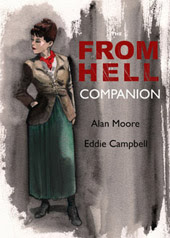
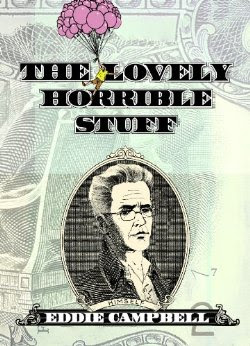

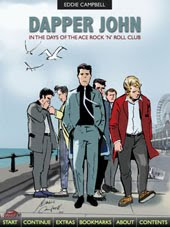
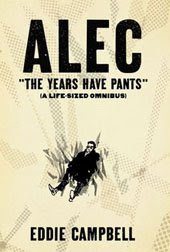
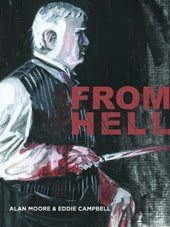
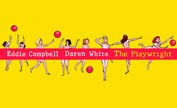
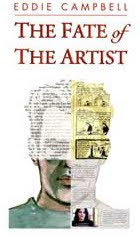
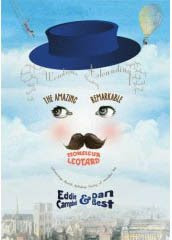
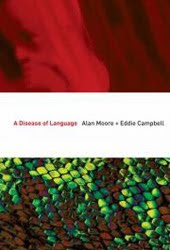
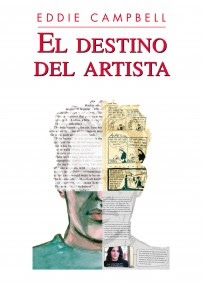
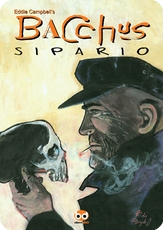
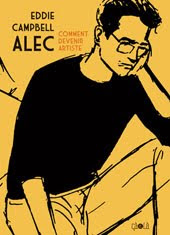

25 Comments:
Maybe we should have 3 shelves in the bookstore: one for Comic Books, one for Graphic Novels, and one for Strip Lit...
...I love the term "Strip Lit".
And today's capcha is: bjgbzosi ;}P>
ZzzZZzzzz......
I can't believe this debate is still happening in 2007, it feels just like 1987 all over again. The Seventh Seal and Dude Where's My Car both belong to film, Joy Division and Britney Spears both belong to pop music. Gemma Bovery and Batman both belong to the same artform: the comic. The same as Tintin, Peanuts, Calvin & Hobbes, Watchmen etc. They're all bloody comics. Can't we acknowledge works of genius without trying to part them into spurious marketing categories? Mick
I'm with Hayley.
"They're all bloody comics."
I wish we could be like the French and call them "designed bands".
The thing with comics is that they come in different shapes and sizes, it's not a uniform medium like cinema or pop music, hence the problem reviewers and publishers outside the medium have when describing or packaging it. Add to that the way the wretched superhero format dominates the popular perception; and if it's not superheroes, it's the idea that comics are things that only kids read.
This may be a tedious argument for readers but for creators it's a crucial one since it addresses the question of how you escape the limitations of popular perception and reach the widest possible audience. When comic shops are struggling, creators need to find other outlets. If Dan Franklin says he has trouble getting books into shops then that's putting an extra squeeze on creators who are already marginalised in the comic shops.
Alan Moore has told me he sees the future in book sales, not monthly comic sales. On a personal level I'd much rather see my book in Waterstone's (which stocks it) than Forbidden Planet (which doesn't).
"Strip Lit" sounds racey...
(nice)
I am puzzled (as in interested) by the obvious link comics=superheroes=bad thing that seems to be at the bottom of all this.
But then again the comics I grew on had very seldom super heroes, which is to me an American thing most and all (not sure if this is true, it is just a feeling I have).
People are looking down their nose at superheroes in the same way they used to about pulp fiction. And now they are paying fortunes for vintage pulp and collectible!
So I think this whole terminology issue is really just a phase.
And just so: The "graphic novel" seems to become fashionable indeed.
So Alan Moore sees the future in book sales. I know tea leaves are going out of fashion, but is he taking things a bit too far?
As to the rest of it, I guess the whole debate will never be resolved, after all, is everything in Mick's comment art? Meh. Best off being like Hayley.
There's nothing wrong with the word "graphic":
Adj. 1. graphic - written or drawn or engraved; "graphic symbols"
Graphic novels *aren't* written or drawn or engraved? In fact, they're all three.
Adj. 2. graphic - describing nudity or sexual activity in graphic detail; "graphic sexual scenes"
What graphic *really* means here is "described in vivid detail." And it's NOT restricted to "nudity or sexual activity." In graphic novels, it's primarily the pictures that describe. We don't want the pictures in a graphic novel to "describe in vivid detail"? I sure do.
Adj. 3. graphic - of or relating to the graphic arts; "the etchings, drypoints, lithographs, and engravings which together form his graphic work"- British Book News
Comics have historical and ongoing links to the graphic arts. No shame there. Unless you're an art snob.
Adj. 4. graphic - relating to or presented by a graph; "a graphic presentation of the data"
Not too many graphs in graphic novels, but so what? Words have multiple meanings. And, anyway, there are comics that have many of the characteristics of formal diagrams. Think Chris Ware.
Adj. 5. graphic - evoking lifelike images within the mind; "pictorial poetry and prose"; "graphic accounts of battle"; "a lifelike portrait"; "a vivid description"
Graphic novels don't just "evoke" lifelike images in the mind; they--the good ones, anyway--are loaded from stem to stern with lifelike (and other) images.
And Mitch Benn has gone graphic too.
Check out the Gecko Man soong from his music page if you hae not already.
It seems written for this blog
You may not have seen this yet: The Trouble With Tribbles: A television adaptation by Edward Gorey (page back up for the background)
This might seem like a pedantic topic in the abstract, but Eddie has convinced me of its importance if your object is to broaden the audience for the work you do beyond the limited number of “comic book fans.” Imagine a reader is on the fence about graphic novels because they are afraid they embody everything they don’t like about comic books (crude, simple-minded stories, genre-based subject matter, over-involved plots, cartoonish artwork). In the current critical environment, if they are looking to try a “representative graphic novel,” they are as likely to pick up “Sin City” as “Maus,” since both are presented as reasonable choices (“Comics is comics” after all). Meanwhile, the commercial prospects of Eddie Campbell, Guy Delisle, Joe Sacco, etc. are hostage to that choice. If I were in Eddie's position and there was anything I could do to influence that reader, I’d be screaming and pointing at the top of my voice too.
As a comics fan myself, I don’t have any problem making distinctions between the works of Frank Miller and Art Spiegelman or embracing a medium that can be both literary and goofy, depending on the creator and the context. I remain hopeful that the world at large will be able to make these kinds of judgments on their own, without having to put up fences between one kind of work and another. In the meantime, as long as the larger market is still trying to get a handle on the whole graphic novel thing, I see the problem. All I can say is that if the “comics is comics” mindset prevails, we should at least encourage thoughtful critics to work toward some universal standards of quality to guide general readers toward the more substantial and accomplished work (even genre-based work), rather than the work that is rewarding only if you have a special attachment to the comic book culture.
Let's stop this nonsense. 'Graphic Novel' is a pathetic attempt to legitimize an already legitimate artform. Fuck 'em if readers of 'literature ' cant accept that. We can call them 'comic books' and we should call longer works 'comic novels' or ... fuck it, let's call them 'bande desinee' and that way we can all have our cake and eat it too.
Nathalie rightly to points out that this is an argument very much for the US/UK market.
I don't mind the term "graphic". Much of the time I'm working as a graphic designer, a very loose term which is nonetheless understood as applying to design for print.
"Comic" has always struck me as an awkward word because of its dual meaning. If you say you're a "comic artist" people could be forgiven for thinking you're a stand-up comedian. But I've yet to meet anyone who'd want to describe themselves as a graphic novelist.
The term "graphic novel" has been kicking around at least since the early 1960s, and graphic novels have been marketed under the term "graphic novel" since the mid 1970s. Anybody who thinks the term is going to be abandoned now, especially given the increasing success of "graphic novels" in the marketplace, is dreaming in Technicolor.
john c said... But I've yet to meet anyone who'd want to describe themselves as a graphic novelist.
Oh, the irony! From the Wikipedia entry for Eddie Campbell (under the heading "Eddie Campbell's (Revised) Graphic Novel Manifesto"):
-----
"While the graphic novelist regards his various antecedents as geniuses and prophets without whose work he could not have envisioned his own, he does not want to be obliged to stand in line behind William Hogarth's Rake's Progress every time he obtains a piece of publicity for himself or the art in general."
and
"The goal of the graphic novelist is to take the form of the comic book, which has become an embarrassment, and raise it to a more ambitious and meaningful level."
and
"The graphic novelists' subject is all of existence, including their own life."
and
"Graphic novelists would never think of using the term graphic novel when speaking among their fellows."
and
"Furthermore, graphic novelists are well aware that the next wave of cartoonists will choose to work in the smallest possible forms and will ridicule us all for our pomposity."
and
"The graphic novelist reserves the right to deny any or all of the above if it means a quick sale."
-----
john c, meet Eddie Campbell.
anonymous,
master of the google search. Thanks for proving my point about the word 'graphic', which wasn't a point anyway, just an observation of the prevailing muddle. The word does not in any way suggest the medium of the strip cartoon, but is customarily used in this context as though it does. Why remove the word 'novel' and replace it with 'biography'. IN what way does that make meaning more precise? But thanks for adding to the muddle all the same. leave a name next time.
oh, you posted again just below. Eddie Campbell's manifesto... you can see that the final line turns it into a gag, yes? Obviously you haven't been around very long.
Rob, thanks. truly appreciated.
John C,
"the wretched superhero format dominates the popular perception "
that's it in a nutshell. How to adjust popular perception? Which is what I now have to attempt (I have to do a tv spot. I figured the alternative was worse i.e. that they'd get somebody ele to do it, and I would have to squirm in embarrassment if i ever saw it. )
Excellent stuff. You've persuaded me. But I can't resist:
It's important to explain these concepts again and again, otherwise we might all just get on with our work without worrying about what it should be called!
But seriously, I'm learning a lot from your dissertations on the topic, and I do agree that it's important, if only because we need to use the right language (and perhaps avoid certain labels) to get our books into the wider literary consciousness, with half a chance of achieving understanding & appreciation of what we do.
You get on TV and tell 'em, Eddie!
Nicki
"you can see that the final line turns it into a gag, yes? Obviously you haven't been around very long."
I've been around. I just don't pay much attention to your work, most of the time. That's not a dig. It's just the truth. If the manifesto was a gag, well, it was a bit of a misfire, IMHO. That's not a dig either. It's an honest response. And if you want people to sign their posts, set up your blog so as not to allow anonymous comments. And then I'll exercise my right not to bother at all with your work, opinions, gags, etc.
yeah, fuck off then
This comment has been removed by a blog administrator.
Have the decency to sign your name, or be deleted.
I proffer any apologies if I inflamed things in the first instance. And arguably Britney hasn't been that great since Toxic. Mick
note
Mick Evans always signs his name and is not to be confused with the other commenter above. This should not be taken to imply that we don't tell each other to fuck off.
all the time in fact.
This comment has been removed by a blog administrator.
This comment has been removed by a blog administrator.
Subscribe to Post Comments [Atom]
<< Home